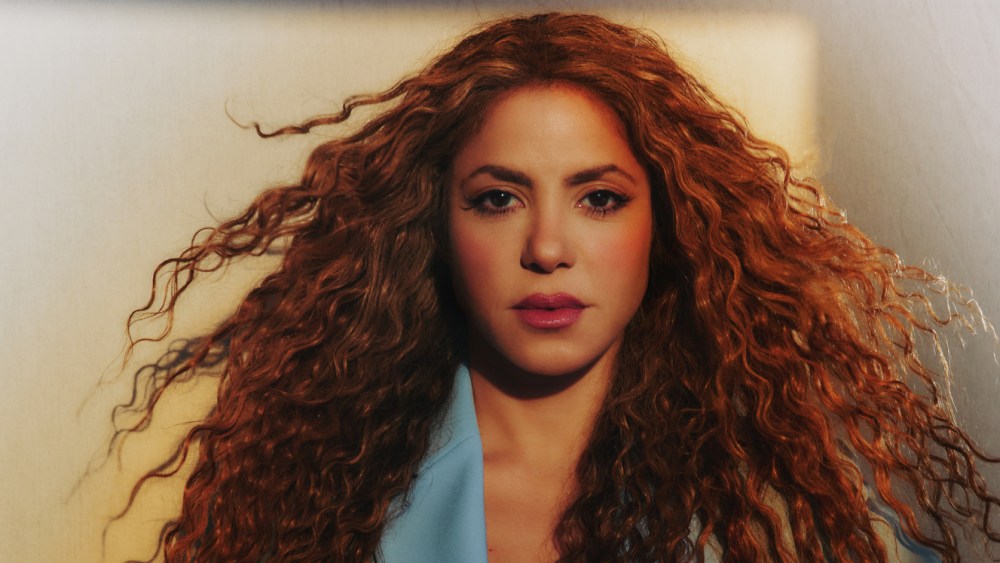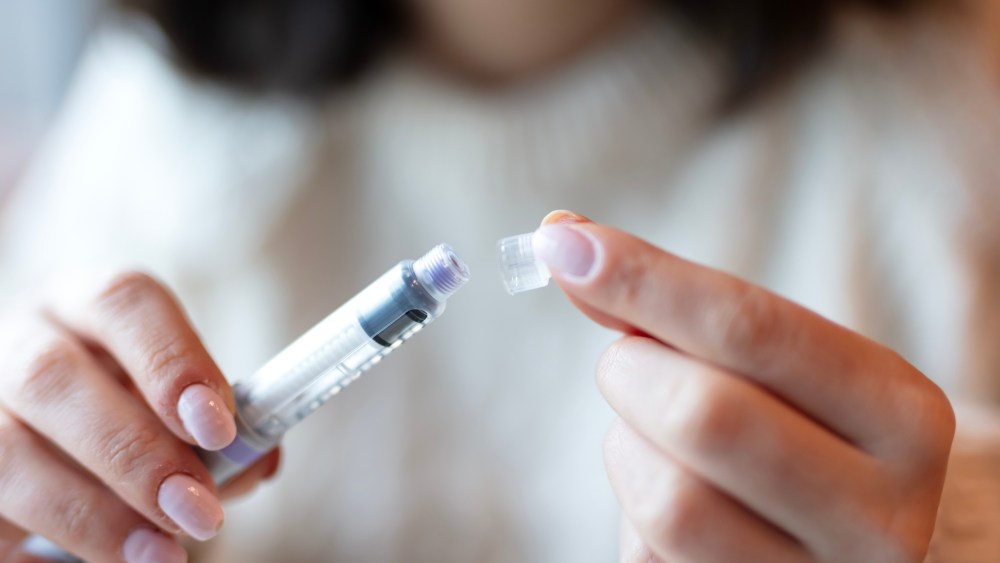Her hips don’t lie, but neither does her hair.
After decades as a powerhouse performer and global icon, Shakira is getting into the celebrity beauty mix with Isima, her range of eight hair care products that debuts on its website this month and Ulta Beauty’s full distribution in July. Prices range from $32 to $42.
On a Spring Friday in New York, Shakira commanded a room of executives as deftly as she does the global stage — just as much self assurance but a bit less dancing. After all, Isima is one of her most personal projects to date.
Related Articles
“My hair has been my identity for a long time. My entire life I’ve felt that way, and I’ve had a love-hate relationship with my hair,” Shakira said. “I love it because I need it, but I also hate it when it makes me suffer.”
Like many of the consumers she’s targeting with the brand, hair is just as much about emotion as it is appearance for Shakira, who said she’s always one to coordinate her hair to specific eras of her music career, for which she’s in the middle of touring globally.

“I’m one of those women who has left many times from the salon crying, feeling that life is over after they burn your hair trying to bleach it,” she said. “It’s been an adventure my entire life to try and search for the right product for my hair, a hair that has very complex needs.”
She couldn’t find products that suited her, so she made them. Among them are the Reset Clarifying Shampoo, Iconic Densifying Scalp Serum, Delicia Reparative Hair Oil, Curls Don’t Lie Curl Perfector, All In Restorative Leave-In Conditioner, Riquísima Hydrating Shampoo, Suavísima Hydrating Conditioner and Súperbomba Triple Repair Peptide Mask.
“Instead of me going to some pharmacy and cocktailing products, I looked for a group of experts and a group of scientists that knew how to do this and experts that have a lot of experience in the beauty and hair care space,” she said.
Two years later, Isima is the result. The name is a superlative Spanish suffix that accentuates the word it’s attached to. Case in point, the brand’s shampoo, Riquísima, is inherently tastier than a simple “rica.”
“I want it to be inspiring for other women,” Shakira said. “I want it to be empowering for women, I want my community to feel that finally they don’t have to be underserved, and I don’t think the old saying of ‘less is more’ is true for hair care,” she said. “More is more with hair. Mine always needs more, right? That’s the whole thing, the whole back-and-forth with the Isima team.”
That’s become the basis for the products overall, which take a holistic approach to treating scalp and hair.
“There are nine peptides in the amino acid chain that acts on the scalp sort of like a retinol does without the irritation,” she said, gesturing to the brand’s Súperbomba hair mask. “There’s also a gluconate bond that helps restore the ionic and hydrogen bonds that get damaged in the process of color treatments.”
Much of the brand’s proprietary TriModal Method, a biotrichology-rooted approach to target scalp, hair cortex and cuticle simultaneously, was masterminded by the brand’s chief scientific officer Anthony Potin, a L’Oréal veteran across divisions.
Also in the C-suite are Andreea Diaconescu, the brand’s chief marketing and growth officer, and Sid Katari, the brand’s chief executive officer.
“I’ve been on this project for a little over two years now, and I think before I joined, the idea of the brand started with Shakira,” Katari said. “We started to think about what would we do if we brought something new and different into the market that served the modern needs of the modern consumer.”
Katari himself has a hair care pedigree, having spent his career most recently at Oribe. “The genesis of Isima came from recognizing a profound disconnect in hair care, an industry that oversimplified complex needs, and it left many consumers underserved.”
Neither commented on sales, but industry sources expect Isima to reach between $20 million and $30 million in its first year on the market.
“The consumer is looking for value and performance,” Katari said. “It’s obvious that there’s a heightened consumer skepticism these days, versus blind belief in brands in the past. Consumers want to know more, they’re more in the know, they scrutinize more, they test claims and marketing. In hair, there’s a lot of loose marketing that doesn’t serve the consumer.”
That being said, Isima’s products still boast rigorous claims, such as the 96-hour frizz control on the Delicia Reparative Hair Oil, or the five-fold reduction in breakage after a single use of All In Restorative Leave-In Conditioner.

“I kept saying to Sid and Anthony, ‘This needs more hydration, send it back,’ or ‘Now I need more scent,’” Shakira said. “It was a delicate balance. It was careful, and a steady and methodical process of getting these products where they are today, and that’s why I feel comfortable enough to share them with my community now. It’s been 30 years of a career, and I want to make sure that if I’m sharing something with women like me that we feel it’s a real solution to a lot of people’s real problems.”
Though the celebrity beauty churn has slowed in recent years, there’s still opportunities for those that do it well. Cécred, the hair brand founded by Beyoncé Knowles-Carter, had a splashy debut with Ulta Beauty earlier this year in a first-of-its-kind partnership for both the brand and the retailer. Hailey Bieber, the founder of Rhode, sold her beauty brand to E.l.f. Beauty at a valuation of $1 billion.
Going to market has “always been a balance,” Katari said. “We want to stand out in a very crowded market, and the brand distinguishes itself through our philosophy about hair, seeing it not as a science-driven, static thing but as a more dynamic expression of identity.”
The products are designed to be universal in terms of hair types, though Katari is bullish on the Latin American market. “When you look at our Latin-rooted perspective, it brings very unique cultural insights into the beauty conversation. In Latin culture, hair is a really significant expression of identity and heritage,” he said. “Not to mention, it encompasses the full spectrum of hair diversity and it makes the perfect foundation for truly inclusive solutions.”
That thinking extended to the branding as well. “That’s where the Latin spirit and energy and culture and color and vibrancy come from,” Katari said. “And Shakira is such a figure of leadership in the community itself, that’s where the spirit of the brand really comes out. We focused so much on science but the vitality of the brand comes from the Latin roots.”
For Ulta, the retailer is keeping its stake in the ground on one of beauty’s healthiest categories. Circana reported that in the first quarter for the U.S. prestige market, hair grew 4 percent.
“We’re thrilled with the guest engagement,” said Penny Coy, senior vice president of merchandising, Ulta Beauty, of the category. “We’ve always been a leader in hair and we have some big brands, but now Isima launching with us will give the impact of innovation and newness into the category.”

Isima also fits squarely into Ulta Beauty’s conscious beauty platform. “It hits all five pillars,” Coy said. “Clean ingredients, vegan, sustainable packaging, cruelty free and they have the give-back with her being a goodwill ambassador to the United Nations. She does a lot of work.”
Due to the success of Cécred, Coy is keeping a few key learnings in mind for the Isima launch. “We know the guest comes when we give them excitement, and you can wrap that into a celebrity or a well-known influencer who is passionate, but it needs to be authentic. And this is very authentic to Shakira. We actually met with them over three years ago.”
Katari is already beginning to think about international expansion, but is firmly focused on Ulta. “We’ve designed the brand with intentional scalability, but our approach is going to be driven by the community’s need rather than opportunistic marketing,” he said. “When we look at the Latin diaspora, there’s a natural pathway for international growth. We’re going to start with Ulta as our exclusive partner in the U.S. but the standards of our products make us globally relevant.”
As for why Ulta, Katari said the decision was a natural fit. “They care about their consumers very much and that’s where our values were aligned,” he said. “We always put the consumer first, and when we look at new markets, we identify where Shakira herself has resonance and where hair is in need of disruption.”
Shakira already has ideas about what she wants to introduce to the brand next. “I’m really inquisitive, and I’ve been like this in every single aspect of my career — it took a year for me to go through every single detail of the shows on my tour,” Shakira said. “We already have ideas on the horizon for things we think will be revolutionary.”



